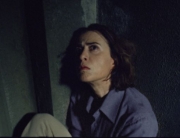After the attacks on September 11, 2001, it became a truism that the world had forever changed. While most everyone agreed with this, the reality was that the world did not change, but rather any semblance of restraint on American power changed. In recent years, films have dramatized the rapaciousness engendered by the immense victimization Americans felt on September 11. The Hurt Locker examined how war had become a sort of drug, and Rendition revealed the horrors of clandestine detention facilities. Eye in the Sky and Good Kill depicted the menace of drone warfare, while Zero Dark Thirty tentatively criticized our embrace of torture.
But every bit as jarring as those more visceral, physical examples of the new American forcefulness is the huge growth of the surveillance state. The NSA and the CIA made mincemeat out of the Bill of Rights when it came to digital privacy, justifying spying on American citizens with vague fears of a “cyber 9/11.” In the wake of such an unprecedented attack, violations of civil liberties were seen as a matter of course. Oliver Stone’s latest film is another major entry in the growing list of films about how out of control the most powerful country in the world has become since 2001.
Stone’s film covers a nine-year period in the life of security systems administrator turned whistleblower Snowden as he grows from an idealistic Special Forces enlistee in 2004 to becoming the most wanted man in the world after his disclosure of NSA documents in 2013. Joseph Gordon-Levitt nails Snowden’s voice and mannerisms in what is probably the best performance of his career.
Despite its hefty 134-minute running time, there is so much ground covered here that it can feel a bit rushed. Still, we spend enough time with Snowden in his formative days as a failed Special Forces soldier (he breaks his leg jumping out of bed) and his subsequent application to the CIA to get a solid grounding in who he is. Despite only having a GED and no college degree, Snowden’s top scores on the CIA’s entrance exams and his perfect interview answers (Q: “What was the most important day of your life?” A: “September 11th, 2001”) are enough to convince senior director Corbin O’Brian (Rhys Ifans) to give him a shot.
Since he was too physically frail to serve his country in a conventional way, Snowden used his technical wizardry to do the same. However, much like Vietnam War hero turned antiwar activist Ron Kovic (Born of the Fourth of July), even patriots can lose the faith. The story follows the slow but sure whittling away of Snowden’s patriotic idealism, and with a steady hand, Stone traces this gradual evolution. There are precious few of Stone’s trademark speechifying moments where he unsubtly lambastes American imperialism. Instead, Stone artfully depicts the unraveling of a true believer with sophistication and restraint. Snowden expects to find truth, justice, and the American way at the core of high-flown institutions that are there to protect the country, but he just finds amoral careerism.
Snowden’s 20s were one continuous arc of success to the top of the intelligence industry, where his skills as a systems administrator enabled him to have any job he wanted. He is given plum assignments in Japan and Geneva before landing a job specially created only for him in Hawaii. His life seems to have been a nonstop blur of 12-hour days staring at screens, but the one constant lifeline was his free-spirited girlfriend, Lindsay Mills (Shailene Woodley). She is a liberal and critical of power, while Snowden, at least at the start, sticks with his country no matter what. Their relationship is the heart of the movie, and her influence on him explains his eventual actions.
Snowden lived such a full life by the time he turned whistleblower at age 29 that this biopic feels like it could’ve been multiple movies or even an HBO miniseries. Though a key scene highlights his disillusionment with field work alongside Timothy Olyphant’s sleazy, careerist operative, a richer world is hinted at there that would have been worth spending more time within. There is also one scene with Nicolas Cage’s eccentric cryptographer Hank Forrester, who provides a glimmer of morality and mentorship to Snowden, but he vanishes for the remainder of the film. Cage does better work here than he’s done in years, and it’s too bad his screen time is so limited.
While most everyone knows the name Edward Snowden and has a vague sense of what he did, the movie fills in the biggest gap—namely, who he was as a person and what motivated him to throw away his perfect life to take a moral stand. Viewers also discover how much influence Snowden had on the building many of the key programs that he later came to detest—Snowden was no low-level administrator.
When he is offered the job of a lifetime in Hawaii, Lindsay cautions him against it, since they had finally built a stable, happy life in Maryland after flitting around the globe for the previous few years. He decides to take it, though, because he knows how important it is to the NSA’s ambitions, and he says that he doesn’t think anyone else could do it. Of more consequence is his growing belief that he is in the best position to destroy the beast he helped create.
Snowden is Oliver Stone’s best work in years, and is a compelling drama and a timely document of a key historical event.

















Leave A Comment